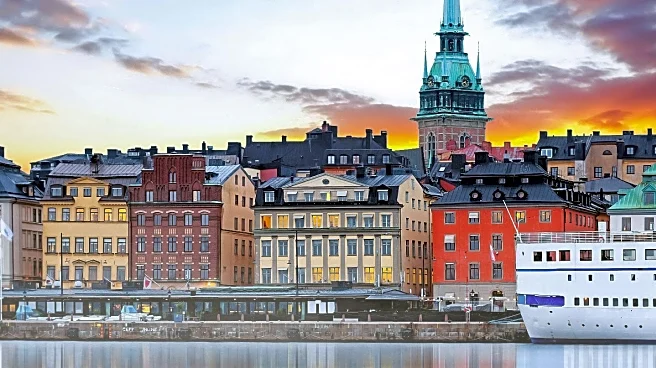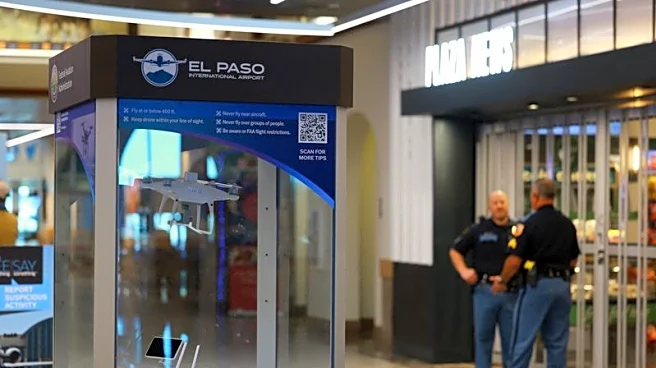What's Happening?
Kiruna Church, a historic Lutheran church located above the Arctic Circle in Sweden, has relocated to a new site due to threats from the world's largest underground iron-ore mine. The church, known for its inclusive ethos, incorporates minority languages such as Northern Sami, Finnish, and Meänkieli into its services. This move reflects the church's commitment to embracing the region's diverse cultural heritage. The relocation is part of a broader effort to preserve the town of Kiruna, which is undergoing significant changes due to mining activities.
Why It's Important?
The relocation of Kiruna Church and its embrace of minority languages highlight the intersection of cultural preservation and environmental challenges. By incorporating languages like Northern Sami, the church acknowledges the importance of cultural identity and inclusivity in religious practices. This approach fosters a sense of community and belonging among Indigenous populations, who have historically faced discrimination and cultural suppression. The church's actions serve as a model for other institutions seeking to promote diversity and reconciliation with marginalized groups.
What's Next?
As Kiruna Church settles into its new location, it plans to continue its inclusive practices and strengthen its relationship with the Sami people. The Swedish government has established a truth commission to address the historical trauma experienced by the Sami due to past policies, including segregated boarding schools. The commission's findings, expected by December 1, may influence future efforts to support Indigenous communities and promote cultural preservation. The church's relocation and ongoing commitment to minority languages may inspire similar initiatives in other regions facing environmental and cultural challenges.
Beyond the Headlines
The relocation of Kiruna Church underscores the broader implications of mining activities on communities and cultural heritage. It raises ethical questions about balancing economic development with environmental preservation and cultural rights. The church's efforts to incorporate minority languages reflect a growing recognition of the importance of linguistic diversity in fostering social cohesion and resilience. As global attention to Indigenous rights and environmental sustainability increases, institutions like Kiruna Church play a crucial role in advocating for inclusive and equitable practices.










